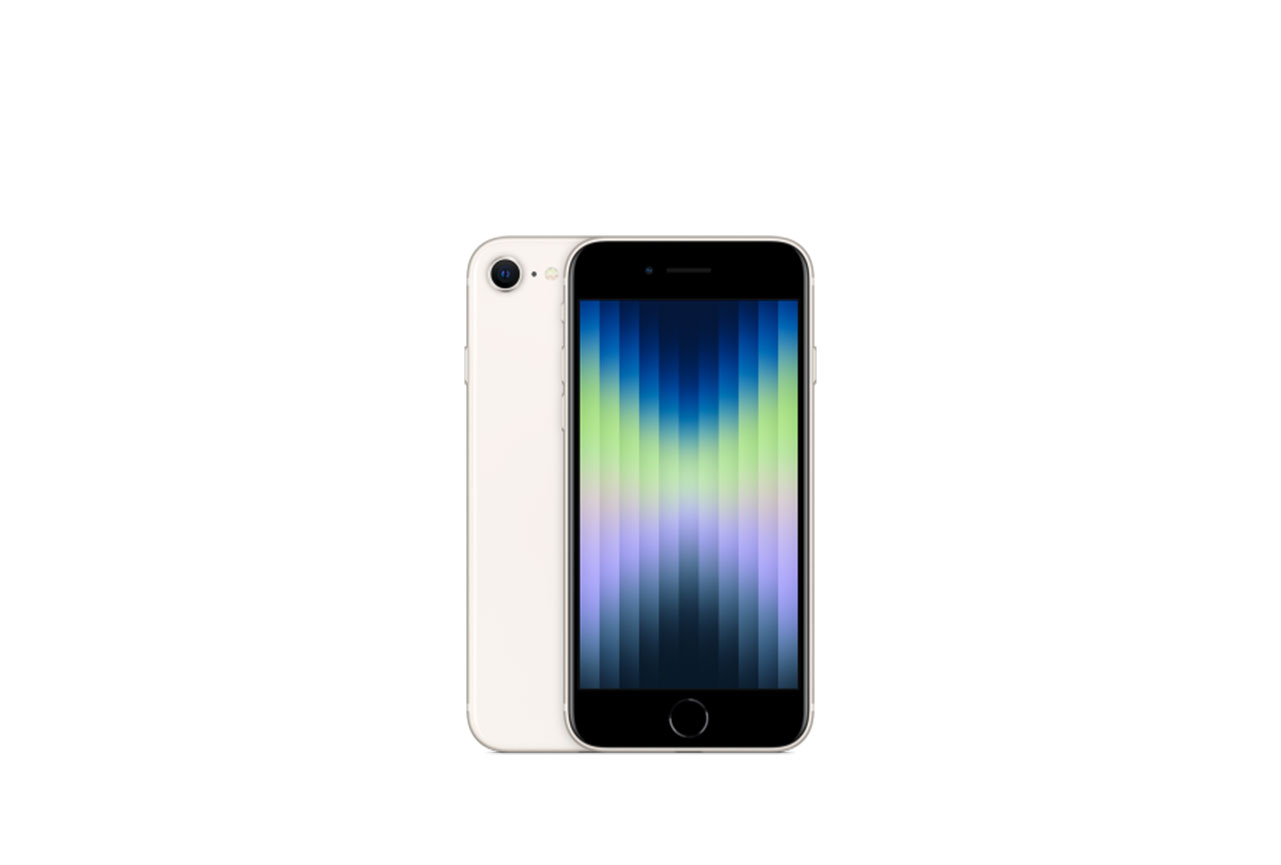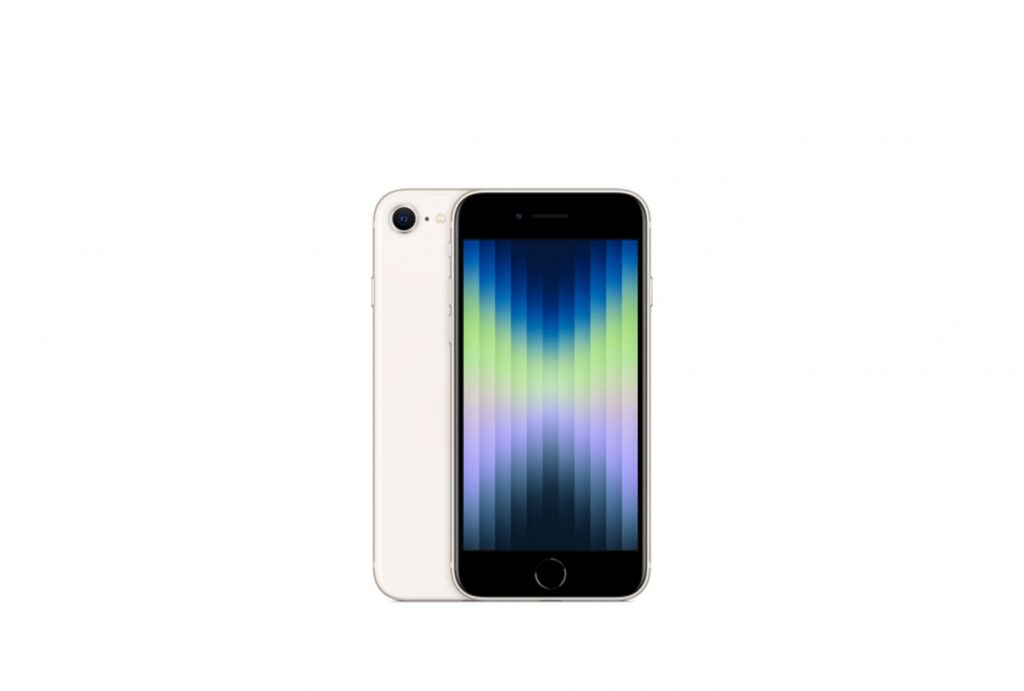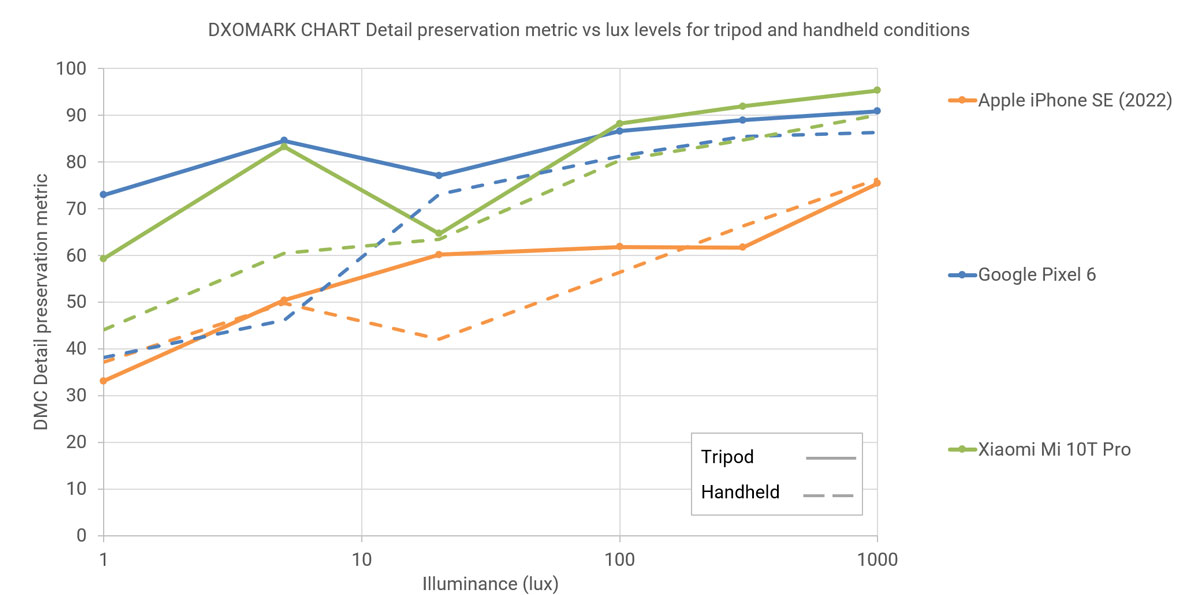Competing in the High-end price segment, the Apple iPhone SE (2022) is the most affordable way to own a new iPhone. With a 4.7-inch IPS display, the device is fairly compact and powered by Apple’s own A15 Bionic chipset. In the camera department, the SE focuses on the essential and only comes with a 12MP wide-angle camera.
With no ultra-wide or dedicated tele camera on offer, let’s see how the Apple iPhone SE (2022) shapes up against the competition from the Android camp.
Key camera specifications:
- 12MP sensor
- f/1.8-aperture lens
- OIS
- LED flash
- 4K at 24/25/30/60fps, 1080p at 25/30/60fps (tested at 4K/30fps)
About DXOMARK Camera tests: For scoring and analysis in our smartphone camera reviews, DXOMARK engineers capture and evaluate over 3000 test images and more than 2.5 hours of video both in controlled lab environments and in natural indoor and outdoor scenes, using the camera’s default settings. This article is designed to highlight the most important results of our testing. For more information about the DXOMARK Camera test protocol, click here. More details on how we score smartphone cameras are available here.
Test summary
Scoring
Sub-scores and attributes included in the calculations of the global score.
 Apple iPhone SE (2022)
Apple iPhone SE (2022)

100
camera
100
Huawei Pura 70 Ultra
Best: Huawei Pura 70 Ultra (130)
111
Apple iPhone 16 Pro
Best: Apple iPhone 16 Pro (130)
114
Huawei Pura 70 Ultra
Best: Huawei Pura 70 Ultra (125)
86
Xiaomi 15 Ultra
Best: Xiaomi 15 Ultra (125)
77
Huawei Pura 70 Ultra
Best: Huawei Pura 70 Ultra (117)
75
Xiaomi Redmi 12 5G
Best: Xiaomi Redmi 12 5G (82)
50
Huawei Pura 70 Ultra
Best: Huawei Pura 70 Ultra (85)
71
Apple iPhone 16 Pro
Best: Apple iPhone 16 Pro (93)
25
Xiaomi 15 Ultra
Best: Xiaomi 15 Ultra (128)
0
Huawei Pura 70 Ultra
Best: Huawei Pura 70 Ultra (122)
100
Oppo Find X8 Pro
Best: Oppo Find X8 Pro (116)
100
Oppo Find X8 Pro
Best: Oppo Find X8 Pro (120)
63
Huawei Pura 70 Ultra
Best: Huawei Pura 70 Ultra (120)
96
Oppo Find X6 Pro
Best: Oppo Find X6 Pro (118)
106
Apple iPhone 16 Pro
Best: Apple iPhone 16 Pro (120)
83
Xiaomi 12S Ultra
Best: Xiaomi 12S Ultra (86)
104
Apple iPhone 16 Pro
Best: Apple iPhone 16 Pro (119)
Use cases & Conditions
Use case scores indicate the product performance in specific situations. They are not included in the overall score calculations.
Outdoor
Photos & videos shot in bright light conditions (≥1000 lux)
Indoor
Photos & videos shot in good lighting conditions (≥100lux)
Lowlight
Photos & videos shot in low lighting conditions (<100 lux)
Friends & Family
Portrait and group photo & videos
Please be aware that beyond this point, we have not modified the initial test results. While data and products remain fully comparable, you might encounter mentions and references to the previous scores.
Position in Global Ranking

160
th
4. Apple iPhone 16 Pro Max
157
10. Apple iPhone 15 Pro Max
154
22. Honor Magic4 Ultimate
147
26. Apple iPhone 14 Pro Max
146
26. Motorola Edge 50 Ultra
146
26. Samsung Galaxy S25 Ultra
146
32. Samsung Galaxy S24 Ultra
144
34. Apple iPhone 13 Pro Max
141
34. Google Pixel 9 Pro Fold
141
38. Samsung Galaxy S23 Ultra
140
43. Tecno Camon 40 Pro 5G
138
45. Vivo X80 Pro (Snapdragon)
137
52. Samsung Galaxy S22 Ultra (Snapdragon)
135
52. Vivo X80 Pro (MediaTek)
135
59. Samsung Galaxy Z Fold6
133
59. Samsung Galaxy S24+ (Exynos)
133
59. Samsung Galaxy S24 FE
133
59. Samsung Galaxy S24 (Exynos)
133
69. Samsung Galaxy Z Flip6
132
70. Apple iPhone 12 Pro Max
131
70. Samsung Galaxy S22 Ultra (Exynos)
131
81. Samsung Galaxy Z Fold5
128
83. Asus Smartphone for Snapdragon Insiders
127
83. Samsung Galaxy Z Flip5
127
83. Samsung Galaxy S23 FE
127
88. Vivo X70 Pro (MediaTek)
126
92. Asus Zenfone 11 Ultra
125
92. Samsung Galaxy S22+ (Exynos)
125
97. Samsung Galaxy Z Fold4
124
100. Apple iPhone 11 Pro Max
122
105. Xiaomi Redmi Note 13 Pro Plus 5G
121
106. Samsung Galaxy Z Fold3 5G
120
106. Samsung Galaxy S22 (Exynos)
120
106. Xiaomi Redmi Note 13 Pro 5G
120
111. Xiaomi Redmi Note 14 Pro+ 5G
118
114. Apple iPhone 12 mini
117
114. Samsung Galaxy S21 Ultra 5G (Snapdragon)
117
114. Samsung Galaxy S21 FE 5G (Snapdragon)
117
114. Samsung Galaxy S21 5G (Snapdragon)
117
120. Vivo X60 Pro 5G (Snapdragon)
116
123. Motorola Edge 50 Neo
115
123. Samsung Galaxy S21+ 5G (Snapdragon)
115
123. Samsung Galaxy S21 Ultra 5G (Exynos)
115
133. Crosscall Stellar-X5
113
133. Xiaomi Redmi Note 12 Pro+ 5G
113
137. Samsung Galaxy Z Flip4
112
139. Samsung Galaxy Z Flip3 5G
111
139. Samsung Galaxy S21+ 5G (Exynos)
111
139. Samsung Galaxy S21 5G (Exynos)
111
144. Samsung Galaxy A55 5G
108
144. Vivo X60 Pro 5G (Exynos)
108
149. Samsung Galaxy A54 5G
107
150. Xiaomi Redmi Note 14 Pro 5G
106
153. Samsung Galaxy A35 5G
104
154. Motorola Edge 40 Neo
103
154. Xiaomi Redmi Note 14 5G
103
156. Xiaomi Redmi Note 12 Pro 5G
102
158. Motorola Edge 30 Pro
101
160. Apple iPhone SE (2022)
100
162. Motorola Moto g75 5G
96
168. Samsung Galaxy A34 5G
92
168. Samsung Galaxy A25 5G
92
172. Xiaomi Redmi Note 13 5G
91
174. Motorola Moto g85 5G
88
174. Samsung Galaxy A52s 5G
88
174. Samsung Galaxy A52 5G
88
178. Motorola moto g54 5G
85
178. Samsung Galaxy A33 5G
85
178. Samsung Galaxy A16 LTE
85
181. Honor Magic6 Lite (5300 mAh)
84
181. Xiaomi Redmi Note 14
84
184. Samsung Galaxy A15 5G
83
186. Samsung Galaxy A15 LTE
81
187. Samsung Galaxy A53 5G
79
189. Xiaomi Redmi Note 11 Pro 5G
78
191. Samsung Galaxy A16 5G
77
193. Motorola Moto G35 5G
75
193. Xiaomi Redmi Note 13
75
196. Honor Magic5 Lite 5G
74
198. Samsung Galaxy A23 5G
70
199. Xiaomi Redmi Note 12 5G
69
202. Motorola moto g34 5G
67
202. Samsung Galaxy A14 5G
67
204. Motorola Moto G62 5G
66
205. Xiaomi Redmi Note 11S 5G
65
207. Xiaomi Redmi Note 12
63
212. Honor Magic4 Lite 5G
61
214. Xiaomi Redmi Note 11
60
216. Crosscall Stellar-M6
59
223. Xiaomi Redmi 10 2022
51
225. Samsung Galaxy A22 5G
48
Position in High-End Ranking

21
st
10. Xiaomi Redmi Note 13 Pro Plus 5G
121
11. Xiaomi Redmi Note 14 Pro+ 5G
118
16. Xiaomi Redmi Note 12 Pro+ 5G
113
19. Samsung Galaxy A55 5G
108
20. Samsung Galaxy A54 5G
107
21. Apple iPhone SE (2022)
100
27. Samsung Galaxy A52s 5G
88
27. Samsung Galaxy A52 5G
88
29. Samsung Galaxy A53 5G
79
Pros
- Good exposure in bright light and indoors for photo and video
- Fast and accurate autofocus, wide depth of field
- Accurate colors and neutral white balance
- Preview image is close to final capture
- Fairly good texture/noise trade-off in bright light video
- Nice color in bright light and indoor video
Cons
- Lack of fine detail
- Luminance and chroma noise
- Image artifacts, including ringing ghosting and color fringing
- Strong lack of detail when tele zooming
- Occasionally extremely underexposed night shots in flash-off mode
- Strong underexposure and shadow clipping in low light video
- Low texture/noise trade-off and indoor and low light video
- White balance casts in video
- Ineffective video stabilization and autofocus instabilities when moving while recording video
With a DXOMARK Camera score of 118, the Apple iPhone SE (2022) does well in its segment and has made significant improvements over its predecessor the iPhone SE (2020). But the lack of ultra wide and tele cameras on the 2022 version means it cannot quite keep up with the best-in-class Google Pixel 6.
When capturing still images, exposure is good in bright light and under typical indoor conditions, but images shot in low light are often underexposed. The autofocus performs well and is quite fast, thanks to zero-shutter-lag technology. A wide depth of field means background subjects are rendered sharp. Color rendering is accurate, with fairly neutral white balance.
On the downside, the texture/noise trade-off is fairly low. Images lack fine detail, and luminance noise and low-frequency chroma noise are often noticeable. Our testers occasionally also found artifacts, such as ringing, ghosting and color fringing.
This graph shows that the iPhone SE is capable of capturing good detail when mounted on a tripod in bright light and indoors. However, things quickly go downhill in low light. When handholding the phone detail is preservation is already low at indoor light levels and drops further in low light.
This graph shows DMC detail preservation against the light level (in lux). The DMC detail preservation metric is an AI-based texture analysis, trained on selected crops from the DMC chart.
Zooming isn’t a strong point of the iPhone SE. Without an ultra wide camera there simply is no way to zoom out from the primary camera. Tele-zooming is done purely digitally, which results in a strong loss of detail as you can see in the samples below.
Apple iPhone SE (2022), long range tele
Apple iPhone SE (2022), crop: lack of detail, limited
dynamic range, noise
Apple iPhone 13 mini, long range tele
Apple iPhone 13 mini, crop: lack of detail, limited dynamic range, noise
Xiaomi 12, long range tele
Xiaomi 12, crop: lack of detail, better dynamic range, noise
In video mode, the camera produces accurate exposure in bright light and indoors but, like for stills, underexposure can occur in low light. While recording in bright light or indoors white balance is fairly neutral and colors are pleasant and saturated. Autofocus can be a little unstable, though. This is particularly noticeable with moving subjects in the scene. The footage lacks fine detail, and while noise is only slightly visible outdoors it becomes more intrusive indoors and in low light, with some chroma noise mixed in. Stabilization works well while recording statically, but when moving or running while recording there’s a lot of camera shake.
In this sample clip, the face is well exposed, and a wide dynamic range ensures good detail on both face and sky. Exposure and dynamic range are also fairly stable across the entire video. Colors are pleasant, with good saturation, but some autofocus instabilities and pumping are noticeable. When it’s in focus, the face has good detail, though, and noise is low. The stabilization system is not capable of compensating for all camera motion.
Apple iPhone SE (2022), good exposure, good detail and low noise on face, autofocus instabilities, camera shake
Apple iPhone 13 mini, better texture, lower noise, effective stabilization
Xiaomi 12, better texture, lower noise, effective stabilization, blue cast



 160th
160th 21st
21st






DXOMARK encourages its readers to share comments on the articles. To read or post comments, Disqus cookies are required. Change your Cookies Preferences and read more about our Comment Policy.